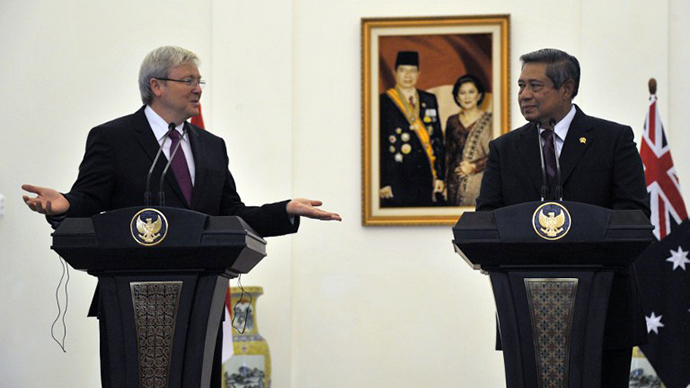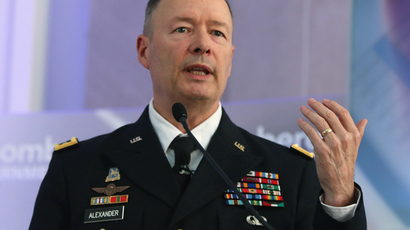Australia and US spied on Indonesia during UN summit - report

Australia and the US worked side by side on a large-scale joint surveillance operation on Indonesia, during the 2007 UN climate change conference in Bali, a new report from the NSA leaker, Edward Snowden, has revealed.
In 2007, Australia's newly elected prime minister, Kevin Rudd,
attended the summit in Bali at the personal invitation of the
Indonesian President. According to the document cited by the
Guardian newspaper's Australian edition, the US and Australia's
intelligence agencies were looking to collect the phone numbers
of Indonesian security officials.
It was not a particularly successful operation, though, the
Guardian noted, with the only practical outcome the National
Security Agency (NSA) and the Defence Signals Directorate (DSD)
achieved was the mobile phone number of Bali’s chief of police.
According to an account of the mission, included in a weekly
report from the NSA base in Australia, at Pine Gap, dated January
2008, "The goal of the development effort was to gain a solid
understanding of the network structure should collection be
required in the event of an emergency."
At the end of the operation the NSA wrapped up: “Highlights
include the compromise of the mobile phone number for Bali’s
chief of police.
“Site efforts revealed previously unknown Indonesian
communications networks and postured us to increase collection in
the event of a crisis.”
The embarrassing revelation has heated up tensions between
Australia and Indonesia. Indonesia has called in the Australian
ambassador in Jakarta for an explanation.

The Indonesian foreign minister said it was "not cricket"
for Australia to spy on the region along with the US. Earlier
reports revealed by Snowden have showed that the US has been busy
monitoring communication activities of up to 35 world leaders,
including German Chancellor, Angela Merkel, and Brazilian
President Dilma Rousseff.
Communications of hundreds of millions of people across the world
were also monitored, the leaked documents revealed, including
British, French, Spanish and American citizens.
"If Australia was itself subjected to such an activity do you
consider it as being a friendly act or not? We are deeply
concerned and it's something we cannot accept," Marty
Natalegawa said. ''I'm not sure what is the right term in
Australian terminology. I guess it's not cricket.''
Relations between the two sides became aggravated after it was
reported that Australian diplomatic missions in Asia were
allegedly used to intercept phone calls and data.
A report based on a secret NSA document and published this week
in Der Spiegel and the Sydney Morning Herald, has named a number
of cities in which Asian embassies have been used for electronic
surveillance by a group of intelligence partners known as the
"Five Eyes" - the US, the UK, Canada, Australia, and New Zealand
- all of whom are bound by a written intelligence-sharing
agreement. The embassies allegedly involved in the spying spree
are Jakarta, Bangkok, Beijing, Hanoi, Kuala Lumpur, and Malaysia,
among others.
Australian Prime Minister Tony Abbott refused to comment on the
specifics of the state's intelligence activities, but said that
"the thing about every Australian governmental agency is that
we all operate in accordance with the law."
"Now, as for the precise workings of our intelligence
organizations, it's been a long-standing practice not to comment
on them," he told reporters.














